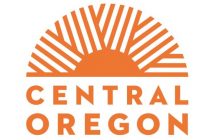(Photo | Pexels)
The pandemic has brought unprecedented challenges to the way we do things and think about things. People are worried about their financial future, and what may be coming around the corner in the form of policy and consumer behavior. There is talk about looming recession and an economic down turn. The clouds gathering around us are dark and gloomy.
In addition to learning how to live our lives during a pandemic, the US is going through an election year. If there is a power swing at the federal government level this November, we could be looking at losing record-high Gifting and Estate Transfer Tax Exemptions. This article hopes to pierce the veil of darkness with some rays of light in the form of planning opportunities around your estate.
A person’s estate is simply the things they own minus the liabilities they have — some would call this your net-worth. Through the history of our tax system, there have been many taxes assessed on one’s estate. Most recently, our federal tax system moved from taxing estates over $5 million to only taxing estates well over $11 million. If you are wondering how this applies to you, Oregon taxes estates at just $1 million, so with a house and a retirement account it can be easy to get to these limits.
Estate planning aims to do its best to mitigate an individual or a couple’s desires (where and what they would like their estate to do when they pass away) with taxes (how much their estate’s beneficiaries will have left over). Potential estate plans and strategies are outside the scope of this article, but here are a couple very specific opportunities and possibilities.
Lifetime Gifting
The first opportunity has to do with lifetime gifting and the impending economic downturn. Gifts are always based on the fair-market-value (FMV) of an asset when it’s gifted, not the original cost. Gifting in a hot, growing economy generally means you will be limited to gifting less because the underlying value of the assets you are gifting will be higher. You can gift $15,000 of value to an individual annually, without being required to file a federal gift tax return. With the lifetime gift exclusion at well over $11 million, you can gift a whole lot of value without having to pay a gift tax (you utilize your lifetime exemption instead).
Ray of light takeaway: “You can gift more when values are down.”
Changes to Lifetime Exemption Amount
The next point focuses on the possibility of a new direction in the federal government, and the potential of the lifetime exemption being lowered from over $11 million to much lower. Some are speculating $3.5 million and the gift/estate tax rate being raised from an effective rate of 40 percent to something closer to 60-80 percent. Our $11 million exemption is unprecedented and came in the wake of the Tax and Job Cut Act that was passed near the end of 2017. Exemptions have been as low as $0, $1 million and $2 million in very recent years. Oregon has not felt a need to increase or decrease their exemption and it has remained a constant $1 million, with no sign that it will change in the near future. Since Oregon does not tax gifts, there should be no hesitation from a state estate tax implication to gift by using up your record-high federal exemptions.
Ray of light takeaway: “There is still time to do unprecedented levels of lifetime gifting.”
Summary
In summary, because we are looking at a potential pause in FMV growth and/or a decrease in FMV for normally appreciating assets, and we have unprecedented lifetime gift exclusions, now could be a great time to take another look at your estate plan.
If you have questions about your estate, discuss these opportunities/possibilities with your advisors. There is an election in November, and there are unknown lasting effects of the pandemic that will come into play with asset valuation in the coming months and years that make this a “Perfect Storm” for life-succession and estate planning. Please reach out to us if you would like further information regarding your estate planning or any other issue.
Neil Langlois, CPA is a Senior Manager and a key member of the Jones & Roth Family Business, and Estate & Trust teams. He provides a broad range of services in tax planning and business consulting to his clients, thanks to his years of experience in government, management, and public accounting.





